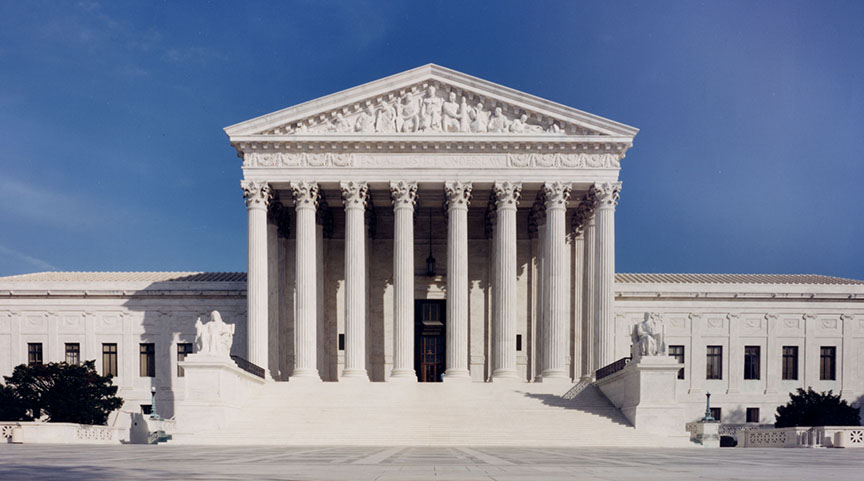The US Supreme Court recently heard a case that could have devastating effects on the standard of care in medicine, and the indicators of where the justices fall are not good. The case is Chiles v Salazar, in which a licensed therapist is arguing that a Colorado law banning conversion therapy for gay and trans clients violates her free speech. So the question is – is therapy given by a licensed professional speech, medical treatment, or some combination?
Let me first establish an important premise – conversion therapy, which is an attempt to alter someone’s sexual orientation or gender identity, has been studied for decades and found to be not only ineffective but actively harmful, increasing the risk of depression, anxiety, and suicidality. For this reason the practice has been condemned by many (here is a list of 53) healthcare organizations.
Of course, there are always complexities and nuances. I think it is very clear conversion therapy does not work. That data on harms, however, is mostly observational, although there is a consistent effect. There is one single researcher and paper which is an outlier opinion, arguing that conversion therapy does not increase suicidality, and this paper has been criticized for methodological flaws.
What all of this means is that there is a very clear standard of care, which rejects conversion therapy (also called reparative therapy, and technically “sexual orientation change efforts” or SOCE). Standards change over time as they evolve with new evidence, available interventions, and perspectives. But that does not mean there is no standard, or that the current standard cannot or should not be upheld.
There are also various ways in which the standard of care is maintained. The first line, and always the preferred method, is simply training – teaching professionals what the standard of care is and why, what the evidence base is, and then confirming their knowledge and expertise through testing, certification, licensing, and continuing education. That is, arguably, what professional licensing in health care is – a social contract in which the licensed individual demonstrates they understand the standard of care, have the knowledge and skills to implement it, and promise to do so faithfully.
But there also needs to be methods of policing the standard of care, and making corrections when it is violated. Institutions, like hospitals and groups practices, are expected to police their own, maintaining standards through privileges and affiliations. Professional organizations can also maintain standards by publishing guidelines, and also giving certification to those who demonstrate expertise, and then revoking it if members repeatedly and willfully violate standards of care. In the US, states regulate medical licenses, and any practitioner can have complaints brought against them and can have their license acted against if they violate the standard of care. This can involve censure, just telling the practitioner to stop the substandard practice, suspending their license, or even revoking their license.
There is also a fairly draconian method when all else fails – suing the practitioner for malpractice. This requires the demonstration of either neglect or substandard practice (not just a bad outcome).
And then there is the method at issue here – governments (usually states) outright banning practices for being substandard and/or harmful. I am not a fan of this method, but I acknowledge in some rare cases it is necessary. The problem with using government legislatures to determine and enforce the standard of care in this way is that such bodies are not capable of nimbly keeping up with the scientific literature. It is not their job to micromanage the scientific evidence and interpret it all to determine what the standard should be. This is why they wisely leave it up to professionals and professional organizations. They enforce the standard of care, but they do not determine what it is – the experts do that.
Typically when legislatures get involved in determining the standard of care it is for political reasons. Their interference also can cut both ways – banning certain practices, but also exempting others from the standard of care. I have been highly critical, for example, of my home state’s (CT) law exempting IV therapy for chronic Lyme disease from the standard of care. This is bad law and bad medicine. But I cannot deny that states have the legal right to do this.
With regard to conversion therapy there is a strong case to be made for simply banning the practice. The fact that it is ineffective is not enough, and even the fact that it is potentially harmful is also not sufficient, in my opinion. Many practices are ineffective and harmful, and they do not all need to be specifically banned – just let the system determine and maintain the standard of care. But in this case there is a particularly vulnerable population being targeted for therapy – minors who are also in a vulnerable social minority and who are often the target of oppressive social, parental, or religious pressure to comply (which casts doubt on their consent). Further, there are practitioners who (for apparent ideological or religious reasons) reject the standard of care. In this specific case a ban is perhaps the most effective way to enforce a very reasonable standard of care that has been long established. You could reasonably put conversion therapy in the same category as other treatments, like frontal lobotomy, where banning is appropriate.
So what’s the issue? The issue is that Chiles’ lawyers are arguing that her conversion therapy is protected free speech, and the conservative justices on the court seem sympathetic to this argument. They have not yet formally decided this case, and I hope that better judgements prevail, but it’s not looking good. This issue goes well beyond conversion therapy – it goes to the very heart of the standard of care in medicine. I would say there are two important issues here with such broad implications. The first is whether free speech trumps professional standards. The second is, is counseling therapy by a licensed professional medical treatment? I think the answers are and should be obvious – no and yes respectively.
On the second count, it has been pointed out (by some of the justices) that the Supreme Court upheld states banning of gender affirming care – which makes it seem like states can ban care the majority of justices don’t like but cannot ban care they do like. I reject any argument that therapy is not real healthcare, so this seems like a blatant double-standard.
The free speech argument is all we are left with, and I also think it is pretty clear here. Therapy is not pure speech. In the context of therapy, speech is professional conduct. It can be regulated in order to uphold the standard of care. Justice Sotomayor, I think, got it exactly right when she asked the question: “If a dietitian decides to help anorexics starve themselves, can the government stop them?”
Any therapist that believes in conversion therapy can make their case to their profession, they can state their opinion in opinion pieces, and advocate for whatever position they want. But when treating a client, the state absolutely has the right and a legitimate legal interest in what they say as part of that therapy. The state gives them a license to practice – and that license gives the therapist responsibilities and also explicitly gives the state the legal right to regulate their professional practice.
I will say, it would be optimal for state departments of health to have the resources and inclination to do their job far more robustly than they typically do. It would not be necessary for states to ban substandard practices if health departments acted swiftly and decisively to uphold the standard of care. But this is not the world we live in. In some specific cases it is simply more efficient to ban a practice.
Perhaps we need a third option – a way to strongly enforce the standard of care but with the backing of recognized experts and the ability to nimbly adapt to evolving evidence. Laws are too rigid, political, and slow. Health departments lack the power and resources to be effective. The easiest solution might just be to give health departments the power and resources they need to be more effective.





